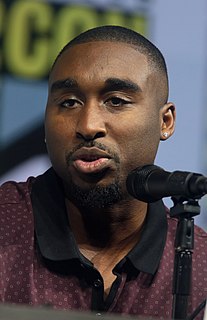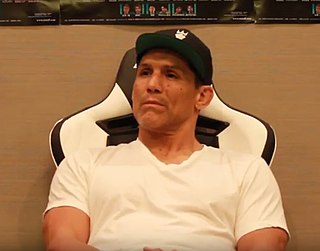A Quote by Kerry James Marshall
One of the things I recognized early on, doing whatever studies of black history I have, is that even though black folks were transported as slaves, into servitude, when they were carried out of Africa they left empty-handed, but they didn't leave empty-headed. They carried with them the culture they knew, the culture they had, and that culture reconstituted itself in all the places they went.
Related Quotes
We were land-based agrarian people from Africa. We were uprooted from Africa, and we spent 200 years developing our culture as black Americans. And then we left the South. We uprooted ourselves and attempted to transplant this culture to the pavements of the industrialized North. And it was a transplant that did not take. I think if we had stayed in the South, we would have been a stronger people. And because the connection between the South of the 20's, 30's and 40's has been broken, it's very difficult to understand who we are.
'Smart Funny and Black' is basically a live black pop culture game show that I created. We have a live band. We have two contestants that we call 'blacksperts.' They come on stage and compete in games that I've created that test their knowledge of black culture, black history, and the black experience.
I did not disregard my culture, if I did, it was the white American culture, and I accepted my true culture, when I accepted Mohammed Ali, because this is a black name, Islam is the black man's religion, and so I would like to say, that I would like to clarify that point that I reclaimed my real culture, and that's being a black man and wearing a black name with a black body, and not a white name, so I would never say that I didn't disown my culture.
This is more in regards to celebrities. What we've got to understand is that we are the influencers of the hip-hop culture, the black culture. We are the way out, you feel what I'm sayin'? As far as who we look to and where we get stuff from - hip-hop culture is influencing the world, really, but especially the black communities.
Above all things, Strikeforce is a stable, established business that has experience with live events, and it has the martial arts culture. I worked closely with EliteXC and they had no martial arts culture. They didn't really understand what they were doing, so the odds of them being successful were kind of a crapshoot.
There's no reason why you can't say "August Wilson, playwright" even though all of my work, every single play, is about black Americans, about black American culture, about the black experience in America. I write about the black experience of men, or I write about black folks. That's who I am. In the same manner that Chekhov wrote about the Russians, I write about blacks. I couldn't do anything else. I wouldn't do anything else.






































